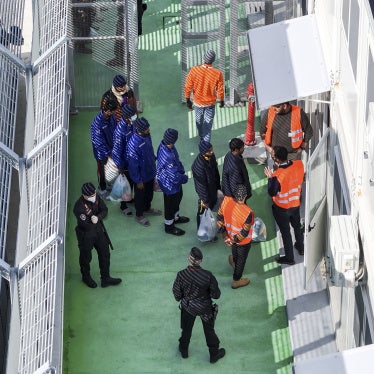The Universal Periodic Review of the United Kingdom addressed a range of concerns including counterterrorism legislation and policies, as well as ways in which the UK is failing to its obligations to promote and protect women’s human rights.
The UK rightly indicated its support for the recommendation that it ensure full compliance of its counterterrorism measures with international human rights, and we acknowledge a number of recent counterterrorism reforms. These reforms have not however addressed the range of human rights concerns arising from the UK’s counterterrorism approach.
- Control orders can no longer require an individual to be forcibly relocated and are subject to stricter time limits. Secret evidence may still be partially relied on to impose such orders, however, and the government has tabled draft legislation that would allow for enhanced control measures in exceptional circumstances.
- Legislation enacted this year reduced pre-charge detention in terrorism cases to 14 days—a positive step—but this is still far longer the 96-hour period allowed for other serious crimes. The government also reserved the right to seek to quickly reinstate temporarily 28-day pre-charge detention in urgent circumstances.
- The UK indicated its support for a recommendation to ensure that “secret evidence” is only used in exceptional cases. However, a draft law currently before the UK Parliament would expand the use of secret evidence in civil court proceedings on national security grounds in ways that run counter to the principles of open justice. The UN Special Rapporteur on Torture has expressed concern that the draft law would inhibit accountability for torture by UK officials.
We deeply regret that the UK rejected the recommendation to abandon its policy of deportation of foreign terrorism suspects with diplomatic assurances. These no-torture promises are inherently unreliable. In most cases it is practically impossible to determine whether a breach has occurred and neither the sending nor the receiving country has any incentive to carry out serious investigations. Nor does post-return monitoring offer an effective safeguard, since the risk of reprisals makes it unlikely detainees will report abuse.
We welcome that the UK government accepted the recommendation to investigate arbitrary detention and torture in the fight against terrorism, and we encourage swift action to establish a credible, judge-led inquiry into the policy framework and failures that may have led to the UK's involvement in torture and rendition. The first inquiry, which was abandoned in January 2012, lacked the necessary independence and powers, with NGOs and lawyers for victims boycotting it as a result. A fresh, credible government inquiry is an essential step to restoring the UK’s moral authority and to prevent such abuses from recurring. We note also that the UK rejected the recommendation to consider any person detained by its armed forces to be under its jurisdiction despite the rulings of the European Court of Human Rights on this issue.
With respect to women’s rights, we welcome the UK signature of the Council of Europe Convention on preventing and combating violence against women and domestic violence, and we encourage the government to ratify the convention swiftly.
At the same time, we regret that the UK rejected the recommendation that it sign the ILO Convention on Decent Work for Domestic Workers, and we note that recent changes to immigration rules have made it harder for foreign domestic workers to leave abusive situations without losing their immigration status.
Women claiming asylum on gender-related grounds continue to be detained and subject to an accelerated procedure, in which claims are decided in just a few days, impeding their ability to adequately prepare often complex asylum claims and obtain medical evidence. We regret that the UK rejected the recommendation to avoid detention under the fast-track asylum procedure.
Human Rights Watch would like to acknowledge the engagement by the UK government with civil society throughout the UPR process. We encourage the government to ensure implementation of the recommendations it has accepted, and to keep under review the recommendations it has rejected with a view to bringing its counterterrorism law and practice fully in line with international human rights standards and to taking concrete steps to improve the rights of women domestic workers and asylum seekers in the UK.








